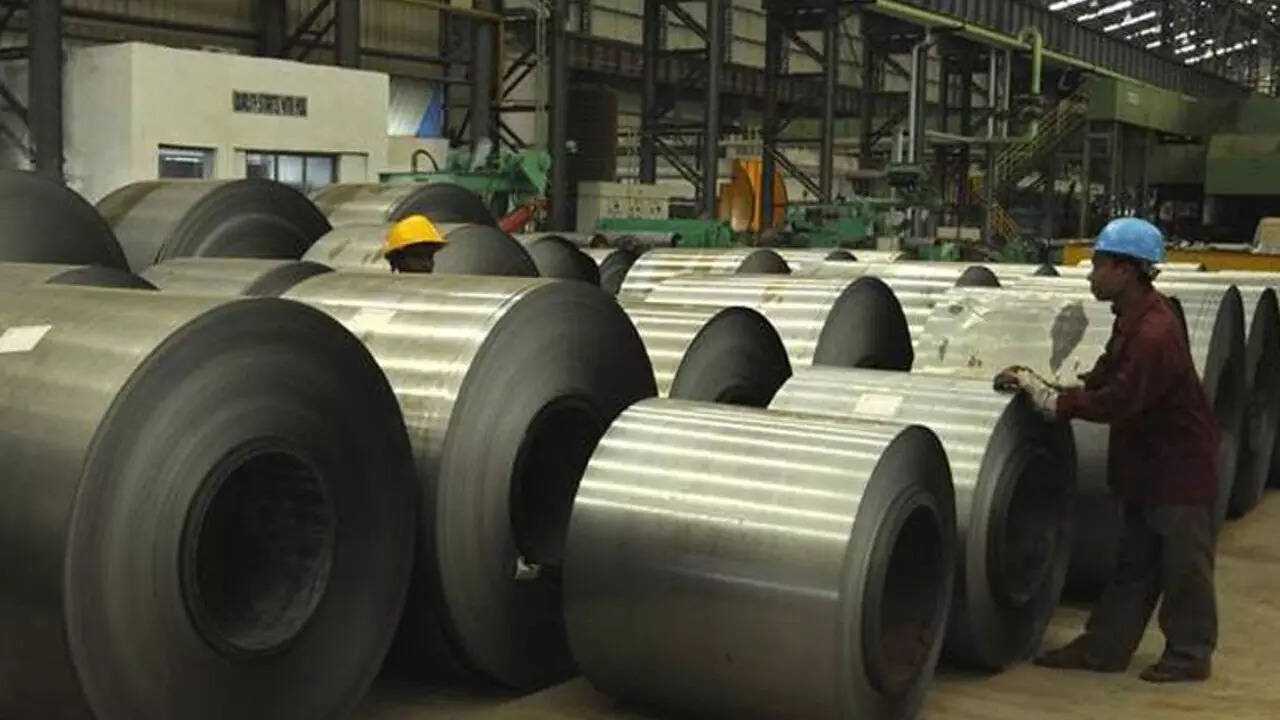
New Delhi: After experiencing steady growth in the last four months, India’s engineering exports declined in April 2024 by 3.2% to USD 8.67 billion primarily due to lower shipments of metals, especially iron & steel and copper.
Lower shipment of steel was mainly witnessed in Italy, Nepal, UAE, Netherlands, USA, China, and South Korea among others.
Excluding the export of iron and steel, engineering exports recorded a growth of 2.61% during April 2024. A substantial 36.41% decline in exports of Iron and Steel therefore was the single most important reason behind the year-on-year decline in overall engineering exports during April 2024.
“The decline in steel exports can be attributed to low international demand in major markets and an increasing trend of nearshoring amongst developed markets. There is also a significant decline in Chinese steel demand which is encouraging Chinese exports at a much more competitive price compared to India,” said Arun Kumar Garodia, Chairman, EEPC India, in a statement.
As per S&P Global, China’s finished steel exports hit the highest level in six years at 90.26 million mt in 2023, up 36.2%, or 23.98 million mt, from 2022. Other factors include slow pick up of global demand since the trade contraction of 2023, tightening interest rates due to inflation in many major markets, and logistics issues such as the Red Sea Crisis.
“However, the industry is hopeful that global trade will pick up and India’s engineering exports would also get some boost in the coming months,” Garodia stated.
The decline in engineering exports was witnessed in almost all regions barring North America, North East Asia, WANA, and CIS.
Among top exporting destinations, the USA, Saudi Arabia, UAE, Singapore, UK, Mexico, and China experienced positive growth in April 2024 while Germany, Italy, Turkey, South Korea, Japan, Nepal, Brazil, Thailand, France, Bangladesh, and many more saw negative export growth.
The top 25 countries contribute more than 75% of total engineering exports from India.
Notably, engineering exports to the US increased 1.2% year-on-year to USD 1.41 billion in April this year. The value of shipments to Saudi Arabia was higher by 48.9% in April 2024 at USD 435.72 million as against USD 292.72 million in April 2023. Engineering exports to China went up 14.8% to USD 210.29 million from USD 183.24 million in the same month last year.
The high base effect led to a decline in engineering exports to Russia. Engineering exports to Russia stood at USD 118.56 million in April 2024, 9.4% lower compared to USD 130.91 million in the corresponding period last year.
North America and European Union remained India’s topmost destinations for engineering exports with a share of 21.1% and 18.4% respectively, in India’s total engineering exports. North East Asia registered the highest growth of 24.5% during April 2024 vis-à-vis the same period last year followed by CIS ( growth of 7.9%), North America (growth of 4.7%), and WANA (growth of 3.1%), remaining all regions witnessed negative growth in exports.
According to the Quick Estimates of the Department of Commerce, Government of India, the share of engineering exports in India’s total merchandise exports during April 2024 was recorded at a higher 25.85% as against 24.76% in April 2023 and 25.01 percent during the entire fiscal 2023-24.
In April 2024, 16 out of 34 engineering panels witnessed positive year-on-year growth, while 18 remaining engineering panels experienced a decline. Exports of Iron and Steel, Products of Iron and Steel, Non-Ferrous products including Copper, Zinc, and Nickel products, Pumps, IC Engines, Machine Tools, Motor Vehicle/Cars, Auto Components and parts, Hand Tools and cutting tools, and Office Equipment dropped.
India’s total engineering goods exports in the financial year ended March 2024 had risen marginally to USD 109.32 billion from USD 107.04 billion in FY2022-23 despite numerous challenges.
Engineering exporters are exploring new markets and deepening their presence in traditional markets with a focus on increasing exports of value-added products. The proposed free trade agreements (FTAs) with important trade partners and blocs are set to help the sector considerably in bolstering its share in the global market.

